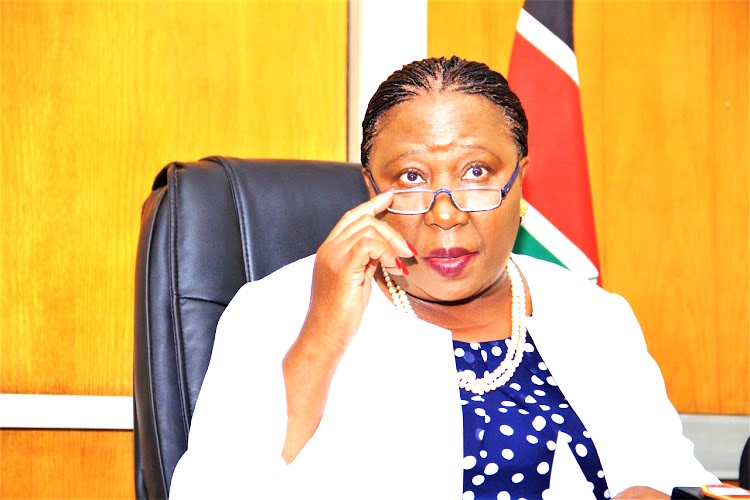By Sammy Chivanga
Savings and Credit Cooperative Societies (Saccos) are dragging their feet on diversifying their investment into new areas such as health and education as the high demand for loans among members put pressure on their wallets.
While the desire to branch into areas such as health exists, not many members are ready to trust management to try out new areas.
In addition, new Saccos that are coming up are also quick to copy what has been tested and proven by the existing cooperatives as opposed to charting new territories.
The lack of diversification in Kenya’s cooperative movement—one of the most vibrant cooperatives sector in Africa—is stark contrast with what is happening in jurisdictions such as India and Britain.
The cooperative movement also played a significant role towards the industrial revolution especially in the developed countries such as the USA, South America’s Brazil and Argentina which are among the global leaders of the cooperative movement.
However, Many Kenyan Saccos are stuck on the primary objective of enabling members to save regularly so as to create a pool of funds from which they can obtain credit facilities on softer terms than is otherwise available in the open market.
Kenya Police DT Sacco, which is among the top cooperatives in the country, does not see a possibility of branching into investments that are away from what it has relied on over the years for growth.
“We have no intention of diversifying investments. Instead, we are targeting more products. We stick to the saving principle of the cooperative movement because the core mandate of a Sacco is to invest in its members,” said David Mategwa, the national Chairman at Kenya Police Sacco.
Yet, the government is seeking increased investments in housing, medical care, clean and renewable energy, infrastructure and manufacturing.
Cooperative societies are dragging their feet on engaging in investment activities in other areas of the economy such as business and buying tangible assets other than land for personal housing needs.
These new investments, says Mr. Moses Chebor who served Boresha Sacco for 35 years and retired in February in the CEO role, require unique sets of skills that may not exist in the Saccos.
“Saccos are concentrating on what they know and have experience on. For example, a Sacco affiliated to the Ministry of Water may find it easier to do water projects as opposed to say one whose majority of members are farmers,” said Mr Chebor.
“The current structure of Saccos is challenging to go into newer areas. It is about limited expertise and low risk appetite.”
This has seen Saccos shy away from opportunities such as investing in the stock market, mining, and management of property portfolio since these areas require new and unique skills.
The high demand for loans among Sacco members is also standing in the way of diversification since many Saccos are channeling over 90 percent of their money on loans.
Mr. Chebor says the only way would be to think in the direction of investment cooperatives,
“Let the main Sacco run the way it is supposed to and concentrate on lending. Unless members agree to mobilize other resources specifically for investing, diversification may be a big challenge,” said Mr. Chebor.
But Kenyans desire to invest through cooperatives was hijacked by self- seekers who promised quick returns in the name of investment Saccos turned Ponzi schemes.
This experience forced the ministry to stop the promotion and registration of investment co- operatives in totality.
However, the draft national policy on co-operative development which was opened to public comment in March acknowledged that Kenya would soon allow for special cooperatives to mobilise money for investment.
“The government shall be reviewing this policy direction to reflect the dynamic business environment and accommodate investors in Diaspora whose savings desires cannot be accommodated in the Sacco model,” reads the policy that has been in the works since 2017.
Cooperative societies that will be engaged in the process of mobilising savings purely for purposes of engaging in investments will be known as savings and investment cooperatives (SICOs).
Such cooperatives, the draft policy says, will not be allowed to advance credit to their members.
Counties are also thinking towards this direction in order to allow cooperatives to invest in diverse sectors.
Migori County for instance recently announced that it was in the process of formulating the County Cooperative Policy Paper that aims at supporting cooperative members adequately.
The new policy would address issues such as development of current cooperatives, registration of new cooperatives, and promotion of vibrant cooperative structure.
Migori County Chief Officer for Public Service Management, Edward Kabaka, said the policy will help small cottage cooperatives to grow and play key roles in diverse sectors.
“The policy will help cooperatives expand agricultural and mining sectors in the County by allowing cooperative members to easily access agricultural extension services like field officers and grants,” he said.
Vihiga County in 2018 also came up with a cooperative policy that among other things routes for the setting up of investments cooperative.
Investment cooperatives were sighted as crucial in determining the future lines of business expansion and financial viability.
“The county government will make concerted efforts to encourage the formation of investment cooperatives in the county,” reads the policy.




